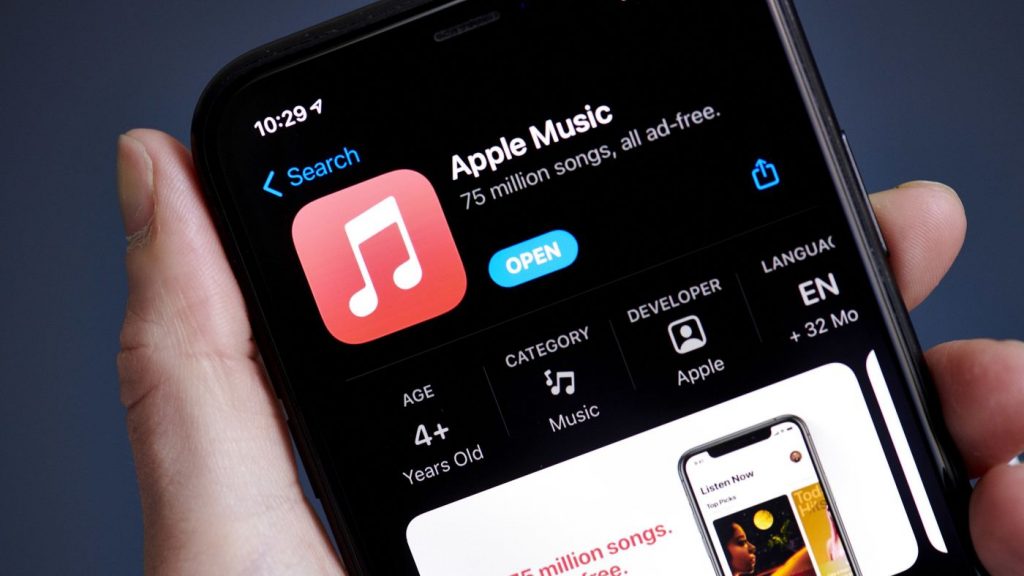By Samuel Stolton and Stephanie Bodoni | Bloomberg
Apple Inc. was hit Monday with a €1.8 billion ($2 billion) penalty from the European Union over an investigation into allegations it shut out music-streaming rivals, including Spotify Technology SA, on its platforms.
The European Commission also ordered the Cupertino, California-based firm to stop preventing music-streaming apps from informing users of cheaper deals away from Apple’s App Store. The larger than expected fine is the first to be handed out to Apple by the EU.
Shares were down 1.5% in premarket trading in New York.
“For a decade, Apple abused its dominant position in the market for the distribution of music streaming apps through the App Store,” EU antitrust chief Margrethe Vestager said. “They did so by restricting developers from informing consumers about alternative, cheaper music services available outside of the Apple ecosystem.”
Apple said it will appeal the EU’s decision, which sets off a legal battle that could last for years. In a statement, the company said regulators failed to “uncover any credible evidence of consumer harm, and ignores the realities of a market that is thriving, competitive, and growing fast.”
Apple reported revenue of $119.6 billion in the first quarter, including $69.7 billion from the iPhone alone, with sales from the device up 6% from a year ago.
Vestager has made it a core strategy to attempt to dismantle Big Tech’s dominance in the bloc through fines and regulatory actions. Monday’s penalty is the third largest that she’s handed out for anti-competitive behavior.
She slapped Alphabet Inc.’s Google with the two biggest EU antitrust fines so far — a record €4.3 billion over its dominance in the Android mobile market in 2018. That followed a €2.4 billion fine for allegedly boosting its own shopping service over rivals. She also ordered Apple to repay €13 billion in allegedly unfair tax breaks from Ireland.
The EU’s investigation was sparked by a complaint nearly five years ago from Stockholm-based Spotify, which claimed it was forced to ramp up the price of its monthly subscriptions to cover costs associated with Apple’s alleged stranglehold on how the App Store operates.
The commission homed in on Apple’s so-called anti-steering rules in a formal charge sheet in February, saying the conditions were unnecessary and meant customers faced higher prices.
“The reality is that European consumers have more choices than ever,” Apple wrote in a post about the EU decision. “Ironically, in the name of competition, today’s decision just cements the dominant position of a successful European company that is the digital music market’s runaway leader.”
Related Articles
Apple cancels work on electric car, ending decade-long effort
Apple exec indulges her passion as Opera San Jose board member
Apple launches its first sports app
Ex-Apple engineer sentenced for trade secrets theft
Will Apple and Tesla be ousted from the Magnificent Seven?
At a private June hearing in the EU case, Apple’s stance was that it already addressed any possible competition concerns, according to a person familiar with the US firm’s thinking. In early 2022, Apple began allowing Spotify and other music services to direct users to the web in their apps to sign up for subscriptions.
Vestager said that Apple’s rules prevented consumers from making informed choices, meaning some may have paid more than they needed to.
“The commission found that Apple’s rules result in withholding key information on prices and features of services from consumers,” she said in a news conference.
The EU crackdown on Apple’s App Store has run alongside sweeping new rules aimed at heading off market abuses before they take root. Under the Digital Markets Act, which comes into full effect this week, it’ll be illegal for the most powerful tech firms to favor their own services over their rivals.
Companies will be barred from combining personal data across their different services and from using data they collect from third-party merchants to compete against them. They will also have to allow users to download apps from rival’s platforms. The rules come into full force March 7 and Apple has also challenged its designation under the new regime.
More stories like this are available on bloomberg.com
©2024 Bloomberg L.P.


